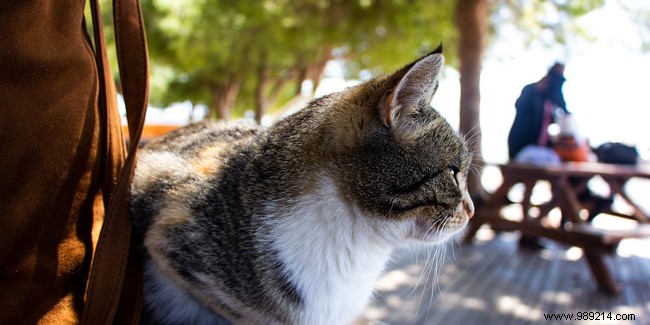It is possible to travel with your cat abroad. But for this, certain documents and procedures are necessary beforehand. The customs services are responsible for checking that your cat meets the mandatory health conditions. In the event of a violation, your pet may be quarantined or even euthanized if its state of health presents a risk, at your expense. On the other hand, the conditions for taking your cat on a trip differ significantly depending on whether you are going to a European country or elsewhere in the world.

To travel with your cat, in Europe or elsewhere in the world, the latter must be identified. You have two choices.
Since July 3, 2011, your pet must be identified using an electronic chip implanted under its skin. This marking must comply with the ISO 11784 standard.
If your cat was identified before July 3, 2011, a tattoo placed inside his ear is accepted so that he can travel with you. You must nevertheless be able to prove its validity by presenting the certificate of the veterinarian who carried out this identification, and this tattoo must be legible, more details are available on Le Mag du Chat.
To travel with your cat in Europe (with the exception of Ireland, Malta, Sweden and the United Kingdom which impose specific rules), but also in Andorra, Iceland, Liechtenstein, Monaco, Norway, San Marino, Switzerland and the Vatican, your pet must have a European passport. On the other hand, it is not necessary if you are departing from mainland France to an overseas region on the occasion of a non-stop trip.
The European passport for your four-legged friend is issued by a veterinarian. It certifies, among other things, that your cat is vaccinated against rabies, that it is well identified thanks to an electronic chip or a tattoo. This official document follows your pet throughout its life.
Please note that some European countries may require additional formalities for your cat to enter the country. This is why it is necessary to contact the embassy or consulate of the country concerned beforehand. This approach is also strongly recommended if you are traveling outside the European Union, as each country has its own rules regarding the entry of pets, including cats, into their territory.
If you are traveling by plane in particular, also find out from your company about the conditions for leaving with your cat. Indeed, on the one hand, some of them limit the number of pets per flight and, on the other hand, some airlines do not accept animals in the cabin.
Whether you are traveling in Europe or outside this region of the world, you must provide certain guarantees concerning the health of your cat. The latter must indeed be correctly vaccinated, in particular against rabies, that is to say that his vaccine must still be valid. To know:the first vaccination must take place when your cat is 12 weeks old and the latter is considered valid 21 days later.
Because of this obligation intended not to transmit rabies, and in particular to bring it back to France, your cat must be over 15 weeks old to be able to travel with you.